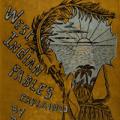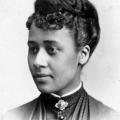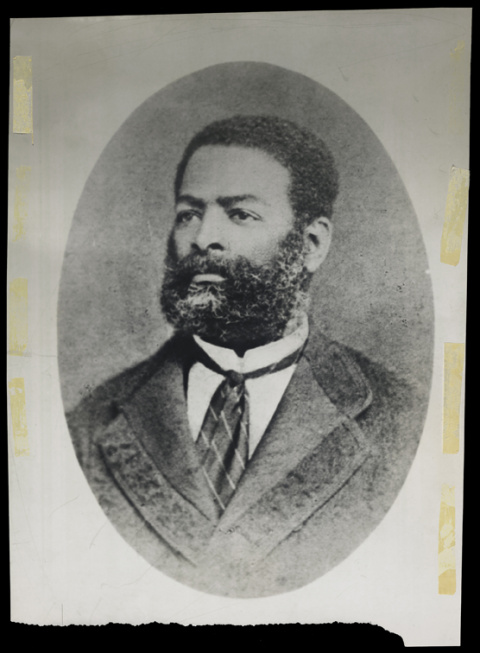60. Though Late, It Is Liberty: Abolitionism in Brazil
Abolitionists Luiz Gama and Joaquim Nabuco, and the great novelist Machado de Assis, react to the injustices of slaveholding in Brazil.
Themes:
• A. Coutinho (ed.), Machado de Assis: Obra Completa (Rio de Janiero: 1992).
• L. Fonseca Ferreira (ed.), Com a palavra, Luiz Gama: Poemas, artigos, cartas, máximas (São Paulo: 2011).
• R. Conrad (trans.), Joaquim Nabuco: Abolitionism, the Brazilian Antislavery Struggle (Urbana: 2013).
• G. Rabassa (trans.), Machado de Assis: The Posthumous Memoirs of Brás Cubas (Oxford: 1997).
---
• C. Braga-Pinto, “The Honor of the Abolitionist and the Shamefulness of Slavery: Raul Pompeia, Luiz Gama, and Joaquim Nabuco,” Luso-Brazilian Review 51 (2014), 170-99.
• E. de Assis Duarte, “Machado de Assis’s African Descent,” Research in African Literatures 38 (2007), 134-51.
• L.C. Dos Santos, Luiz Gama (São Paulo: 2010)
• J.H. Kennedy, “Luiz Gama: Pioneer of Abolition in Brazil,” The Journal of Negro History 59 (1974), 255-67.
• H.S. Klein and F. Vidal Luna, Slavery in Brazil (Cambridge: 2010).
• C. Nabuco, The Life of Joaquim Nabuco, trans. R. Hilton (Stanford: 1950).
• A.J.R. Russell-Wood, The Black Man in Slavery and Freedom in Colonial Brazil (New York: 1982).
• R. Schwarz, A Master on the Periphery of Capitalism: Machado de Assis, trans. J. Gledson (Durham: 2001).
Thanks to Sarah Virgi for help with pronunciation!







Comments
and afro Colombians?
Thanks for including Brazil. Now, what about Colombia? Let's not forget that Colombia has the third largest diaspora population. About 11 million people self identify as black or of African heritage in Colombia. Btw, don't forget that Colombia is also in the Caribbean.
In reply to and afro Colombians? by Juma
Columbia
Thanks for the suggestion - are there any thinkers in particular you would point us towards? At this stage it would be hard for us still to cover anyone who is 19th century, because we have the series pretty much written up until 1900 at this point. But for the 20th century possible inclusions would be very welcome. Also, earlier thinkers could still be fit into my projected later series on Latin American philosophy.
In reply to Columbia by Peter Adamson
Afrolatino Writers
I don't know any names off the top of my head, but I am currently reading Afro-Latin American Studies: An Introduction which has a wealth of information on the subject.
In reply to Afrolatino Writers by Ken
Afro-Latin American Studies
Oh great, thanks - will check that out.
Have you guys read James…
Have you guys read James Weldon Johnson's Introduction/preface to his he Book of American Negro Poetry (1922)? He does an amazing survey of black writers up to the early 20th century from around the world (I am supposing Johnson is definitely going to show up in future episodes). http://gutenberg.org/cache/epub/11986/pg11986-images.html
In reply to Have you guys read James… by Ken
Johnson
Oh no, I haven't but perhaps Chike has. Thanks, we'll check it out!
LATINAMERICAM
I'm just catching up with the Africana section, but it has been great so far. If you're still looking for suggestions of Latin American authors I would not miss Ochy Curiel on the Africana part. Non-Africana I would also not miss María Lugones.
In reply to LATINAMERICAM by FIA
Latin America
Thanks for the suggestions!
Latin American Philosophy series?
Great episode Peter, have you so far found any collaborators to assist you in Latin American (Brazil included) philosophy?
https://plato.stanford.edu/entries/phil-science-latin-america/
https://plato.stanford.edu/entries/latin-american-analytic/
https://plato.stanford.edu/entries/latin-american-metaphilosophy/
https://plato.stanford.edu/entries/latin-american-philosophy/
https://plato.stanford.edu/entries/latinx/
https://plato.stanford.edu/entries/liberation/
https://plato.stanford.edu/entries/philosophy-mexico/
https://plato.stanford.edu/entries/epistemology-latin-america/
https://plato.stanford.edu/entries/feminism-latin-america/
Enough material to cover Pre-Columbine/Indigenous Philosophy of the Americas + Colonial philosophy up to 20th Century in Book 1 (like Africana Volume 1)
Volume 2 = 20th Century/21st century Latin America philosophy like you and Chike are covering with Africana at the moment
This series could take place once you and Karyn Lai take on Classical Chinese and Later Indian Philosophy (Post Dignaga) with Jonardon Ganeri.
In reply to Latin American Philosophy series? by dukeofethereal
Philosophy in the Americas
Right, lots to cover there! Actually even more than you might think, because my idea was actually to start with pre-colonial Americas (Native American thought, Incas, Aztecs, Mayans) and then go on into Latin American philosophy, so with the same structure as Africana. I have even considered trying to tackle this on my own, since it would be such a diverse range of topics, though of course I'd be taking lots of advice. Your point is a good one, that it might be more than one volume worth.
I am actually not sure what I will do after classical Chinese: the main contenders are post-Dignaga in India; later China plus Korea and Japan; or philosophy in the Americas.
In reply to Philosophy in the Americas by Peter Adamson
Volume 1 Latin America + Tibet?
Pre-Colonial thought in the Americas (Mayan, Incas, Aztecs and Native) to the works of Salamanca debates (Valladolid debate and De vitoria debates on the rights of the 'Indians' natives + early Jesuits followed by native Latin American works in the 17th, 18th and 19th century would fit for Volume 1.
It seems like there is more Academic research into Africana than to Latin American Philosophy in the English/German language. So most of the material will be still in their original Spanish/Portuguese sources.
Regarding you tackling Latin/Americas on yourself - if you feel you can tackle this on your own then go ahead. You tackled Byzantine, Medieval, Renaissance, currently Reformation, Iberian/Maghreb Islamic Philosophy and Post Al-Ghazali Eastern Islamic Philosophy tradition on your own which was outside of your research area and did well.
Regarding Classical Chinese Philosophy/Indian series, I have some question.
1. Where do you and Karyn Lai both intend to stop with the series? is it with the introduction of Buddhism in China? is it before the arrival of the Tang Dyansty?
2. is Karyn Lai willing to work on after Classical Chinese given her expertise seems to be classical Chinese? where as Jonardon Ganeri is well versed in later Indian works well after Dignaga given his research and has released more Scholarly works for example.
3. If Karyn Lai won't be doing after Classical Chinese, has there been any other collaborator that at this moment of time you're aware of that might be willing to do work after Classical Chinese that will tackle the Neo-Confucianism period/Modern Era, Islam in China and the influence of Chinese philosophy and Buddhism in Korea and Japan
4. Given the extensive Materials of Japan and Korea, one would assume they would be separate series as opposed to being lumped with Medieval/Modern Chinese Philosophy?
5. Have you thought about tackling Tibetan tradition? they have a rich history of Buddhism and have enough material. Also continues the tradition of Buddhism that would eventually die out from India.
6. Regarding Post Dignaga India, I believe it would best for you and Ganeri (if he is willing to) tackle this tradition once you have concluded Classical Chinese Philosophy. Having listened to episode 61 on Later Indian Philosophy, there is that sense of cliffhanger looming about lol. Given that you and Chike are wrapping up the entirety of Africana philosophy in the next 2 or so years it would be a shame if Indian philosophy did not get that sense of closure. Post Dignaga India is extremely under-appreciated and unknown to many people.
Add new comment